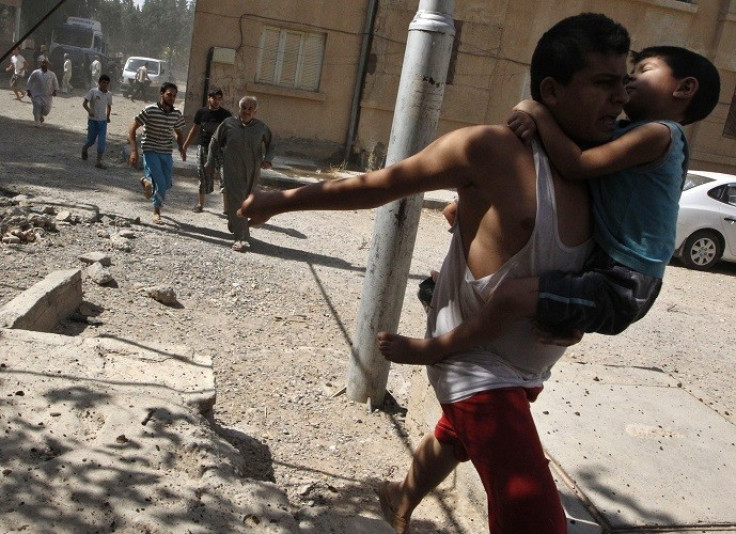Syria Chemical Attack: Russia, US and UK Pressure Assad Regime [VIDEO]
William Hague joins Russian counterpart in urging access for chemical weapons inspectors in Ghouta

Britain, the US and the Syrian regime's staunchest ally Russia have urged Bashar al-Assad to allow UN inspectors to investigate the site of a suspected chemical weapons attack thought to have killed hundreds of people.
Syrian rebels claimed that more than 1,000 people were killed when a barrage of rockets containing toxic agents were launched by government forces into the eastern Damascus suburb of Ghouta.
Assad's government refuted the claims and denied any involvement.
Russian foreign minister Sergei Lavrov called on Assad "to cooperate with the UN chemical experts" already in Damascus to probe the possible use of chemical weapons in earlier incidents.
"It is now up to the opposition to ensure safe access for the mission to the site of the alleged incident," Lavrov said during a phone conversation with US secretary of State John Kerry.
Russia has long backed Assad on the international stage, repeatedly vetoing attempts to pass tougher UN resolutions against Damascus while supplying weapons to the government.
An adviser to President Vladimir Putin had earlier aired speculation that the chemical attack had been staged by rebel fighters to prompt the West's involvement in Syria.
"It is very strange for Damascus to use chemical weapons in a period when Damascus is winning [the battle with the rebels]," Sergei Markov told BBC Radio 4.
William Hague replied by saying it is highly likely that Assad perpetrated the attack.
"I know that some people in the world would like to say that this is some kind of conspiracy brought about by the opposition in Syria," said the foreign secretary.
"I think the chances of that are vanishingly small and so we do believe that this is a chemical attack by the Assad regime."
Hague also urged the regime to allow the 20 UN inspectors access to the site, saying a refusal would signify "the Assad regime has something to hide".
US President Barack Obama, who previously warned that chemical weapons use in Syria would signify crossing a "red line", said the attack was a "big event of grave concern".
"This is something that is going to require America's attention," Obama told CNN's New Day, adding that the use of chemical weapons would be detrimental to "some core national interests that the United States has, both in terms of us making sure that weapons of mass destruction are not proliferating, as well as needing to protect our allies, our bases in the region".
The president added the US was still seeking conclusive evidence that chemical weapons were used, but was sceptical about Assad's cooperation with the UN.
© Copyright IBTimes 2024. All rights reserved.







